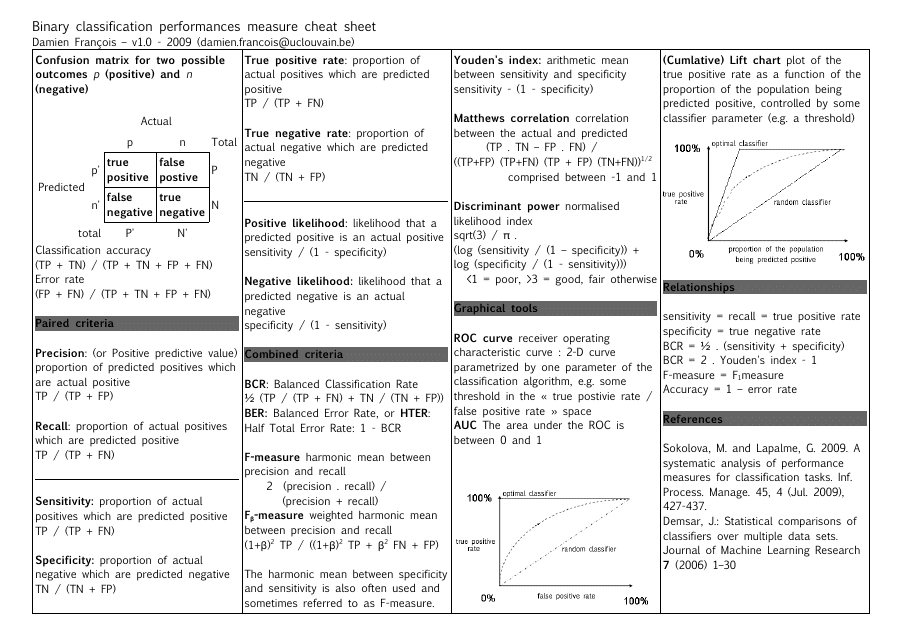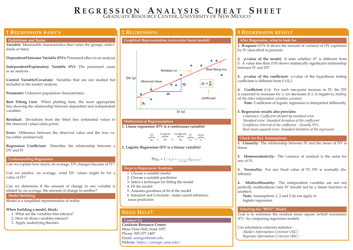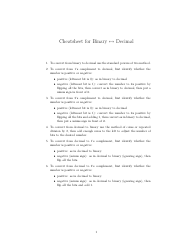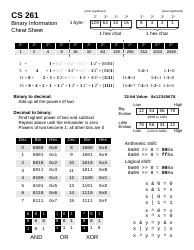Binary Classification & Regression Performances Measure Cheat Sheet
The Binary Classification & Regression Performances Measure Cheat Sheet is used as a reference guide to understand and compare different evaluation metrics for binary classification and regression tasks. It provides a summary of commonly used performance measures, such as accuracy, precision, recall, F1 score, mean squared error, etc. It helps in selecting appropriate metrics based on the specific problem and evaluating the performance of machine learning models.
FAQ
Q: What is binary classification?
A: Binary classification is a type of classification task where the goal is to predict one of two possible classes or labels.
Q: What is regression?
A: Regression is a type of supervised learning task where the goal is to predict continuous numeric values, such as predicting house prices or stock prices.
Q: What are performance measures in binary classification?
A: Performance measures in binary classification are metrics used to evaluate the accuracy and effectiveness of a classification model, such as accuracy, precision, recall, and F1 score.
Q: What is accuracy?
A: Accuracy is a performance measure that calculates the percentage of correct predictions made by a classification model.
Q: What is precision?
A: Precision is a performance measure that calculates the proportion of true positive predictions out of all positive predictions made by a classification model.
Q: What is recall?
A: Recall is a performance measure that calculates the proportion of true positive predictions out of all actual positive instances in the dataset.
Q: What is the F1 score?
A: The F1 score is a performance measure that combines precision and recall into a single metric, calculated as the harmonic mean of precision and recall.
Q: What are performance measures in regression?
A: Performance measures in regression include metrics such as mean squared error (MSE), root mean squared error (RMSE), and R-squared (coefficient of determination).
Q: What is mean squared error (MSE)?
A: Mean squared error is a performance measure that calculates the average squared difference between the predicted and actual values in a regression model.
Q: What is root mean squared error (RMSE)?
A: Root mean squared error is the square root of the mean squared error, providing a measure of the average prediction error in the original units of the target variable.
Q: What is R-squared?
A: R-squared, also known as the coefficient of determination, measures the proportion of the variance in the target variable that is predictable from the independent variables in a regression model.








